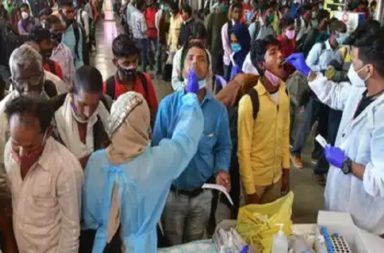The pandemic is creating a class of “new poor” across East Asia and the Pacific with 38 million more people expected to sink into poverty in 2020, according to the World Bank. The World Bank recently said that East Asia and the Pacific region(EAP) is expected to grow at 0.9% this year, the lowest since 1967, due to the coronavirus pandemic. The bank warned that up to 38 million people were expected to remain stuck in poverty or be pushed back into poverty in the region. Further, the World Bank Group’s 2020 Human Capital Index released this month that analyzed progress data across 174 countries and depicted sluggish progress in building human capital units.
Prior to the pandemic, 33 million people in EAP countries had been expected to escape poverty in 2020, based on the upper-middle-income class poverty line of $5.50 a day. “COVID-19 is not only hitting the poor the hardest, it is creating ‘new poor,'” Victoria Kwakwa, vice president for East Asia and the Pacific at the World Bank, said in a press release. “The region is confronted with an unprecedented set of challenges, and governments are facing tough choices.”
In its “From Containment to Recovery” report, which is an update on East Asia and Pacific economies, the financial institution said the region needs to take “swift action” so that the coronavirus pandemic does not hamper growth and increase poverty. School closures, in particular, are likely to have a long-term impact. According to World Bank forecasts, the reduced access to education brought on by preventative school closures could reduce the average student’s future annual earnings by 4% every year of their working lives.
Investments and long-term economic stability in the region are also increasingly at risk. The high prevalence of public and private debt in the region means future investments are likely to take a hit and economic stability could be put at risk as people struggle to pay off their obligations.
Further, the World Bank warned that the EAP governments will need to focus on the hard-won reputations for financial prudence and resort to credible commitments to transparency and financial discipline that could help “mitigate the risk of instability” in the COVID-19 pandemic. World Bank suggested that the region must also deepen trade reforms in protected services sectors such as finance, transport, and communications to relieve the burden on other sectors and focus largely on the advantage of the digital opportunities instead.
However, the bank said the region is likely to see an upward movement in growth in 2021. “Prospects for the region are brighter in 2021, based on the assumption of continued recovery and normalisation of activity in major economies, linked to the possible arrival of a vaccine,” the bank said.





